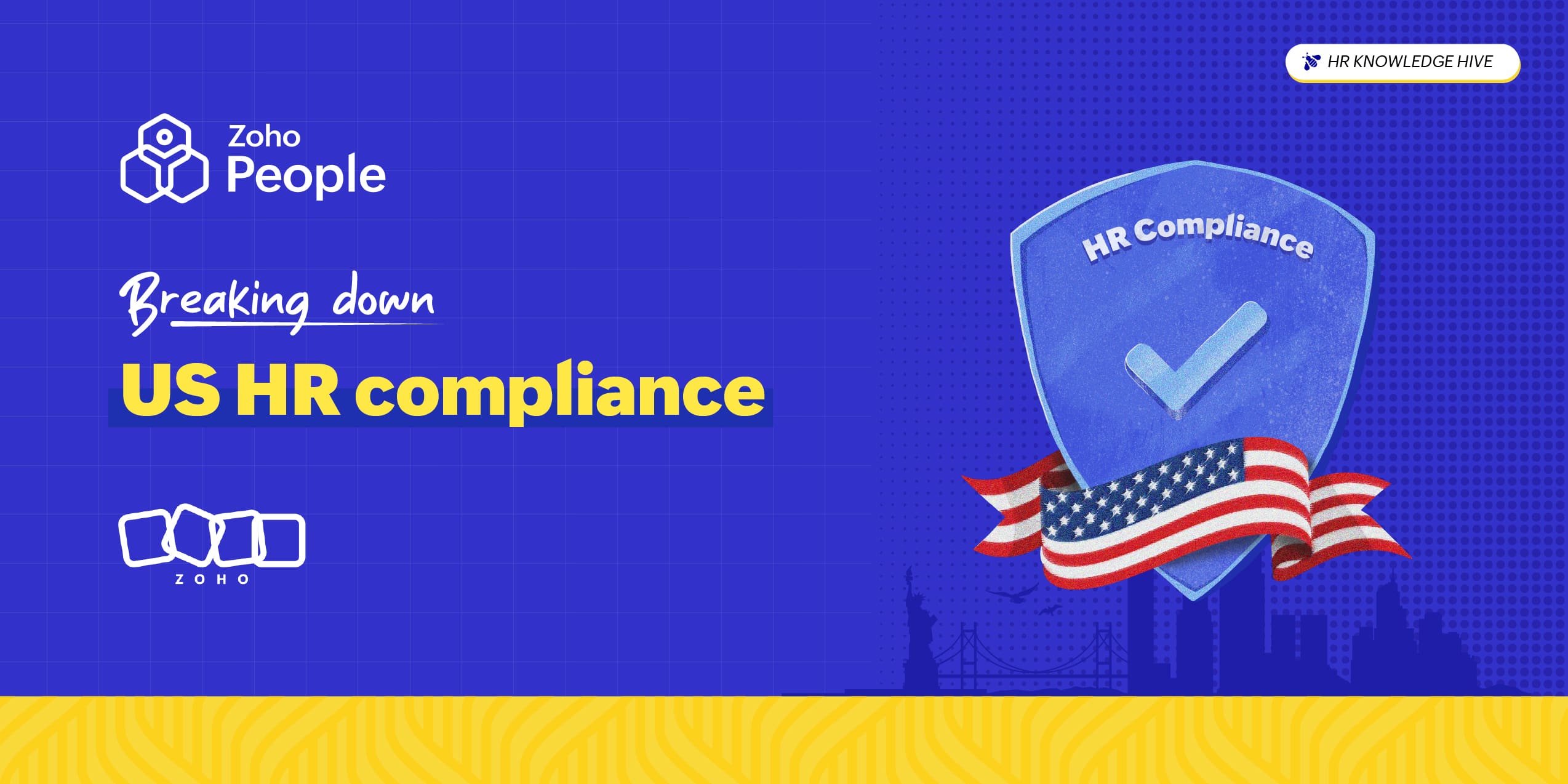- HOME
- More
- On Zoho People
- When do you need HCM software?
When do you need HCM software?
- Last Updated : February 2, 2024
- 1.2K Views
- 6 Min Read

As an HR professional, it's crucial to keep pace with the rate at which the world of work is evolving to cater to your employees' changing expectations and provide them with a seamless working experience. Without frequently revisiting and updating your HR management strategies, your organization will become weighed down by outdated processes and practices that slow down employee progress and prevent your operations from scaling up.
For instance, at a time when many employees are working remotely, asking them to call you every day in the morning to mark their attendance can be super frustrating. Similarly, asking them to call or ping you every time they start or complete a project because you don't have a proper timesheet management system can double their work and delay payroll processing. That's why it's crucial to leverage technology to bring your people management process into the digital age and simplify tasks for your employees. HCM software is one such tech tool that can truly streamline human capital management at your organization, boosting both productivity and engagement for all.
It can be tough deciding whether to make the jump and invest in a digital HCM software, especially if you're part of a small to mid-sized enterprise with a tight budget. But there are situations where the upfront cost will be well worth it. Here are 4 signs it's time to take the next big step and migrate your process to a digital HCM solution:
You've hired more people, but your HR processes haven't evolved
If your organization has less than five employees, you probably don't need HR technology to manage them. One or two people dedicated to handling different HR tasks may be sufficient. However, as your organization expands its reach and starts recruiting more, your HR processes should also scale. It's very likely that what worked for a startup team of three won't work for a team of 30. Even if you hire external recruiters to bring in excellent candidate matches, the effort that it will take to onboard them and maintain engagement levels as they go through their first year of work will be extremely challenging.
Implementing HCM software as soon as you have more than five employees can save your organization a lot of hassle early on. All of your employee data will be centralized from the beginning, giving you immediate access to your HCM solution's reporting and analytical capabilities. At the same time as you're growing your business, you will be able to visualize through data how your employee count is growing, what revenue is looking like, where bottlenecks are forming in your operations, and more. HCM software also simplifies every interaction between your employees and your organization, and because many HCM solutions are cloud-based, employees can participate in and complete HR-related activities from anywhere they like. This makes remote employee management much less stressful for everyone involved.
Employee turnover is at an all-time high
No employee would want to stay in an organization that makes them work, work, work without helping them grow in their careers or simplifying their routine tasks. As an HR professional, you have to make sure that both your organization and its employees benefit equally from your people management strategies. Some areas that employees will expect to be streamlined over time are:
Performance reviews
Feedback channels
Paycheck delivery
Training and development
Goal-setting
Viewing and choosing benefits
When these core HR practices are difficult to navigate, or if they aren't given the priority they deserve, it can drag employee motivation down. Turnover will rise as employees start looking for employment opportunities at organizations that seem to value HR more.
HCM software can truly transform the way you manage your employees and how they work. For instance, a dedicated learning management system (LMS) eliminates the bottlenecks that make training and development a challenge. It provides a proper platform where employees can learn on the go and access course materials whenever they need them. Similarly, the performance management features will help you monitor employee progress and make sure that teams and their managers are on the same page in terms of goals, KRAs, and feedback.
Also Read: Top 5 features to look for in HCM software
Administrative tasks are eating up more than half your day, every day
When was the last time you or your team were able to come up with an HR management strategy that didn't get interrupted or delayed by routine work? If you are managing all your core HR tasks manually, using rigid spreadsheets, or trying to balance multiple HR systems that don't communicate with each other, you are wasting time every day when you don't have to be. Even just logging in and out of two different apps can take more time than you realize. That's why it's essential to implement an HCM system that automates these basic HR activities.
You should be able to tackle everything from attendance and leave management to payroll and employee complaints from within a single interface. A good HCM system will also empower employees, giving them access to the information they need to complete tasks themselves. (This means they don't have to call or email you every time they want to apply for leave or call in sick!) Furthermore, the workflows that come with HCM software enable your team to automate repetitive tasks, like sending mass emails, exporting timesheets for payroll, or generating tax forms. This will not only free up time for your team, but it will also ensure your HR processes are as accurate and timely as possible.
Handling compliance and audits is beginning to get overwhelming
As an HR professional managing tons of employee data, compliance should be one of the highest priorities on your list so you can ensure that your organization avoids heavy penalties and lawsuits. Unfortunately, when compliance is managed manually, it becomes a megalith of a task, and it's easy to let it take a backseat to other important HR activities. Even if it's not your intention, the nature of ever-changing labor laws means that your workplace practices may become misaligned with them if you aren't constantly updating your HR processes. Where it was once easy to pass an audit, you and your team are now spending days getting everything ready and putting the organization at a higher risk of penalization.
Most HCM software systems are designed to manage HR operations in a way that complies with regional and national labor laws and other data protection regulations. The best part: it's up to the vendor to update the system, so compliance becomes automatic. For instance, GDPR is a very important regulation that dictates how organizations should control, process, and save personal and sensitive data. HCM software providers will help you make sure that data is handled in a way that ensures compliance. The only responsibility you may have, then, is choosing who in your organization can view, access, and process the data based on their role.
Wrapping up
Not having proper HR technology like HCM software can lead to a slew of problems that keep your employees and your organization from growing. It can be hard to find HCM software that is consistent with your organization's needs while fitting the budget you have set for yourself. But especially at a time when the global workforce is becoming more spread out, it's essential to make these HR tasks as easy for your employees as possible. We hope this blog gave you a better idea about when you should consider implementing HCM software.
Zoho People, our HCM software, can be customized according to your organization's needs to provide an exceptional working experience to your team. By automating end-to-end HR processes, Zoho People ensures error-free HR processing without a steep learning curve. Learn more about Zoho People.
Also Read:
 Tarika
TarikaContent Specialist at Zoho People


